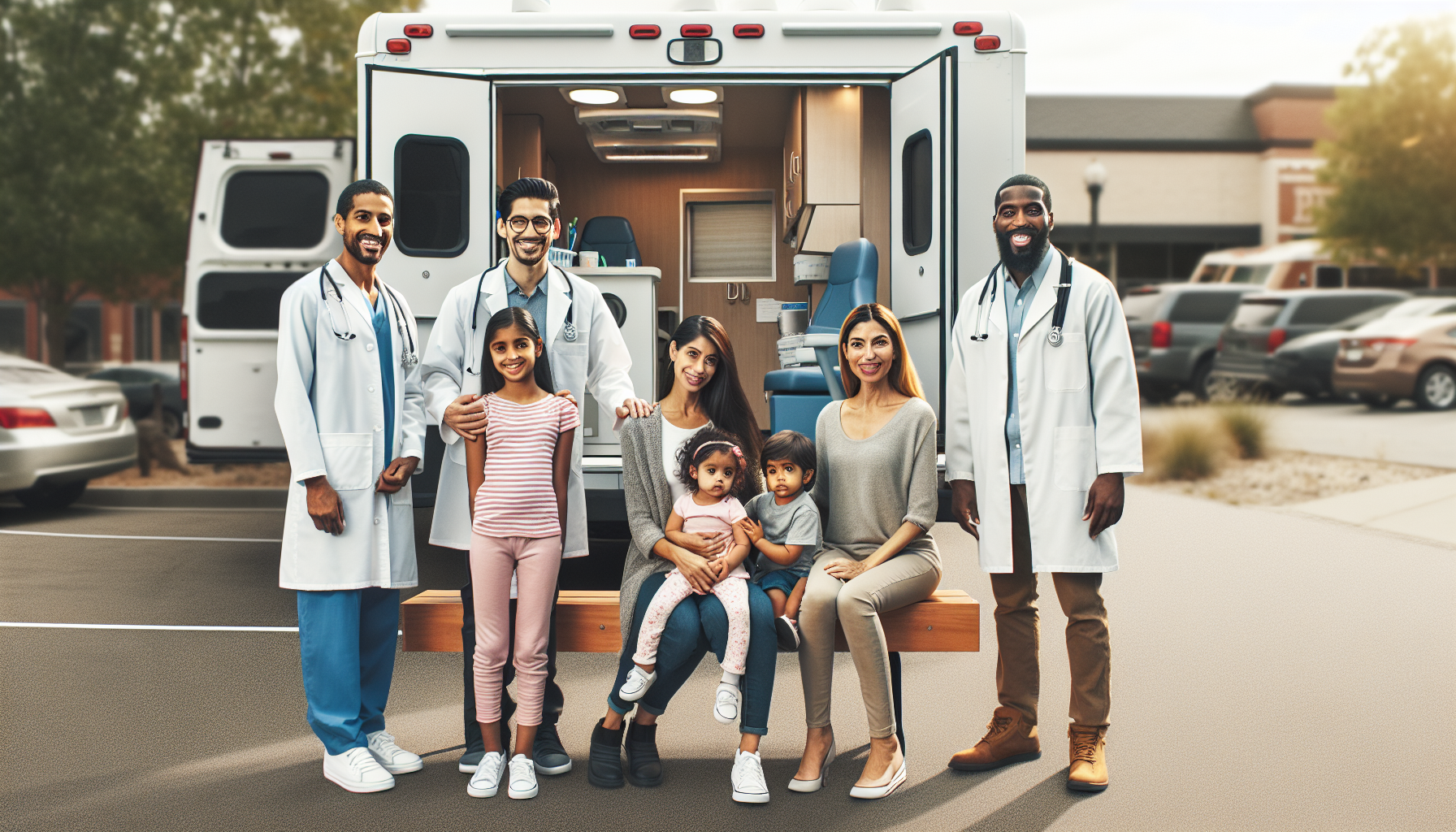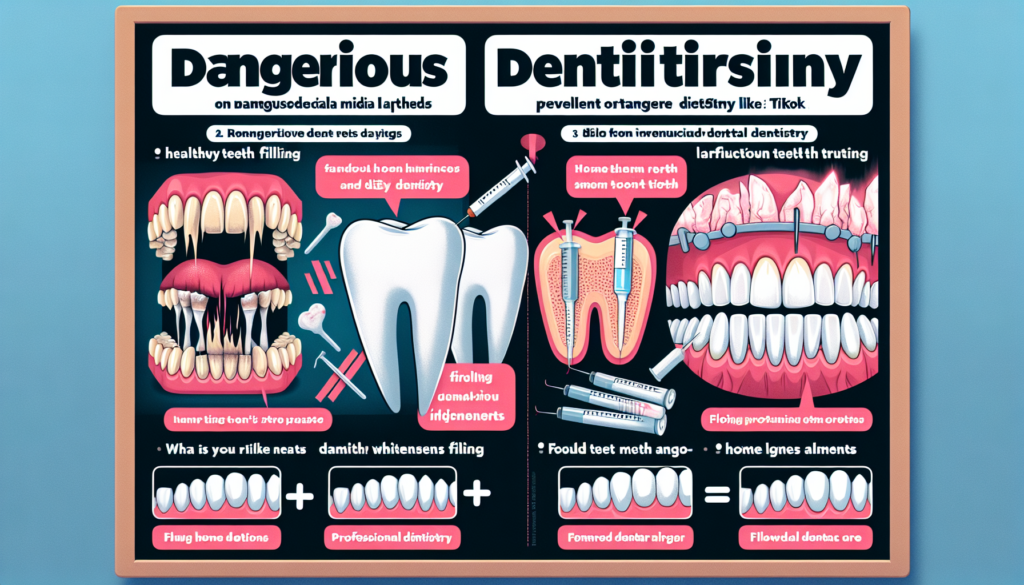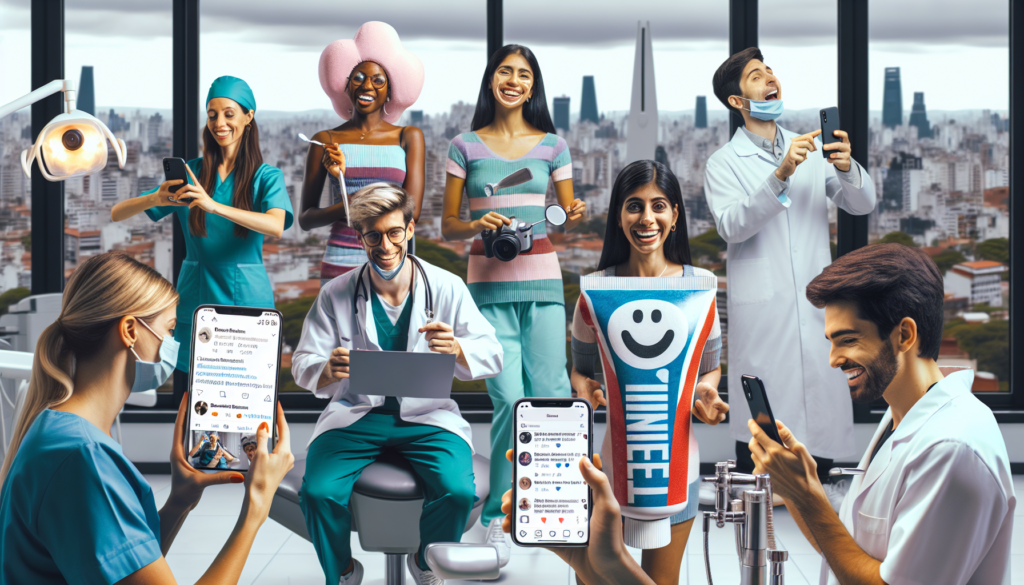Mobile Dental Clinics Expanding Access to Affordable Oral Care
Just like small daily habits can transform your life, consistent dental habits can create a lifetime of confident, healthy smiles. Learn more in The Habit Method. In the same way, new approaches to delivering oral healthcare—like mobile dental clinics—are reshaping how communities access affordable and preventive care.
What Are Mobile Dental Clinics?
Mobile dental clinics are dental offices on wheels—fully equipped vans or buses fitted with dental chairs, radiographic equipment, sterilization stations, and everything needed for comprehensive care. These mobile dental units are designed to travel into neighborhoods, schools, and rural settings where traditional dental offices may not be available. Unlike fixed offices, mobile dentistry focuses on convenience, affordability, and accessibility, removing one of the biggest barriers patients face: transportation.
Why Mobile Dental Clinics Matter
According to the Centers for Disease Control and Prevention (CDC), one in five children aged 5–11 years has at least one untreated decayed tooth, and adults from low-income households are almost twice as likely to have untreated cavities compared to higher-income adults — CDC, Oral Health Surveillance Report. The situation is even more difficult in rural and underserved communities, where dentist shortages worsen disparities. Mobile dental services offer a solution by traveling to these areas and providing much-needed, affordable dental care where people already live, work, and learn.
Benefits of Mobile Dental Clinics
- Breaking transportation barriers: Patients don’t have to travel long distances or find childcare; services come directly to schools, senior centers, and neighborhoods.
- Cost savings: Many mobile dental programs are nonprofit initiatives or supported through community health organizations, which helps provide affordable preventive and restorative care.
- Focus on prevention: Annual exams, cleanings, and education can reduce the risk of advanced dental disease and avoid costly emergency visits.
- Community-centered care: By serving schools, nursing homes, and rural areas, mobile clinics help populations that otherwise face significant challenges accessing care.
Studies suggest that when preventive care is brought directly into communities, patients are more likely to keep up with recommended treatments and develop healthier oral hygiene habits — National Institute of Dental and Craniofacial Research (NIDCR).
Affordable Oral Care Services Offered on Wheels
Modern mobile dental vans are equipped with state-of-the-art technology, allowing dental teams to provide nearly the same level of care you would expect in a permanent dental office. Services often include:
- Routine exams and cleanings that prevent gum disease and detect cavities early.
- X-rays and diagnostic services to evaluate oral health issues not visible to the eye.
- Basic restorative care such as fillings and extractions for patients dealing with pain or decay.
- Preventive treatments like fluoride applications and dental sealants for children.
- Oral health education programs focusing on proper brushing, flossing, nutrition, and the dangers of sugary snacks.
Mobile Dentistry for Underserved Populations
Mobile dental programs often target groups that face the steepest barriers to care:
- Rural areas: Many rural counties in the U.S. have few or no practicing dentists. Mobile dentistry helps bridge these service gaps.
- Seniors: Older adults in nursing facilities often face mobility challenges that keep them from dentist visits. Mobile services bring dental chairs right to their doorstep.
- Low-income families: Children and parents who rely on Medicaid or who are uninsured benefit from low-cost dental programs delivered via mobile units.
By eliminating logistical and financial obstacles, mobile dentist services ensure that vulnerable groups receive compassionate, high-quality care.
How Mobile Dental Clinics Improve Public Health
Oral health is inseparably connected to overall health. Untreated dental problems can lead to systemic infections, poor nutrition, difficulty speaking, and a decline in quality of life. Mobile dental clinics improve public health by:
- Reducing emergency visits: Data shows that preventable dental conditions account for hundreds of thousands of emergency room visits annually. By providing timely interventions, mobile clinics prevent unnecessary hospital costs — Health Policy Institute, ADA.
- Promoting preventive care: When exams and cleanings are accessible, communities adopt healthier oral hygiene practices.
- Strengthening community well-being: Oral health is strongly tied to confidence, employability, and children’s school attendance. Mobile clinics improve these broader outcomes.
The Future of Mobile Dentistry
The field of mobile dentistry is rapidly evolving. Dental vans are outfitted with digital imaging systems, electronic health records, teledentistry consultation tools, and portable sterilization equipment. Beyond technology, growth is being driven by partnerships with:
- Schools: Integrating dental care into schools improves students’ attendance and academic outcomes.
- Employers: Some companies host mobile dental vans at job sites to keep employees healthy.
- Nonprofits and healthcare networks: Expanding outreach programs ensure care for children, families, veterans, and underinsured populations nationwide.
The future of mobile dentistry looks promising as more communities adopt this model as part of comprehensive healthcare delivery.
How to Find a Mobile Dental Clinic Near You
If you or someone you love can’t access traditional dental offices, here are ways to find care:
- Local health departments: County and city health agencies often manage dental vans or can direct families to community partners.
- Community organizations: Churches, nonprofit clinics, and school districts frequently host mobile dental care visits.
- Online resources: Directories from state dental associations and organizations like the National Mobile & Teledentistry Conference provide searchable listings.
Frequently Asked Questions
1. Are mobile dental clinics as safe and effective as traditional offices?
Yes. Mobile clinics are held to the same licensing, sterilization, and safety standards as fixed-location dental offices. They are staffed by licensed professionals using modern equipment.
2. How much do mobile dental services cost?
Costs vary depending on the program. Many are subsidized through public health grants, Medicaid, or nonprofit organizations, making them more affordable than private clinic visits.
3. What treatments can mobile dentists provide?
They commonly offer exams, cleanings, X-rays, fluoride, sealants, fillings, simple extractions, and referrals. Complex procedures like orthodontics or surgery typically require referral to a specialty office.
4. Who qualifies for treatment at a mobile dental unit?
Eligibility depends on the program, but priority groups often include children, seniors, veterans, and low-income families. Many mobile dental vans also serve the general public during community events.
5. How do I prepare for a mobile dental appointment?
Bring any insurance information or Medicaid documentation, arrive a few minutes early, and make sure you know if your service is free or low-cost. Patients should also list any current medications and medical conditions.
Conclusion
Mobile dental clinics are redefining access to oral healthcare by bringing preventive and restorative services directly into the communities that need them most. They reduce barriers, improve health equity, and help patients of all ages achieve healthy smiles. Just as building small, consistent habits leads to long-term success, engaging with mobile dental programs can establish strong oral care routines for a lifetime. Learn more in The Habit Method and take the next step toward lasting oral health.
Post Disclaimer
DentalUp is for educational purposes only and cannot accept personal dental information such as x-rays, photos, or treatment details. See full disclaimer here.





